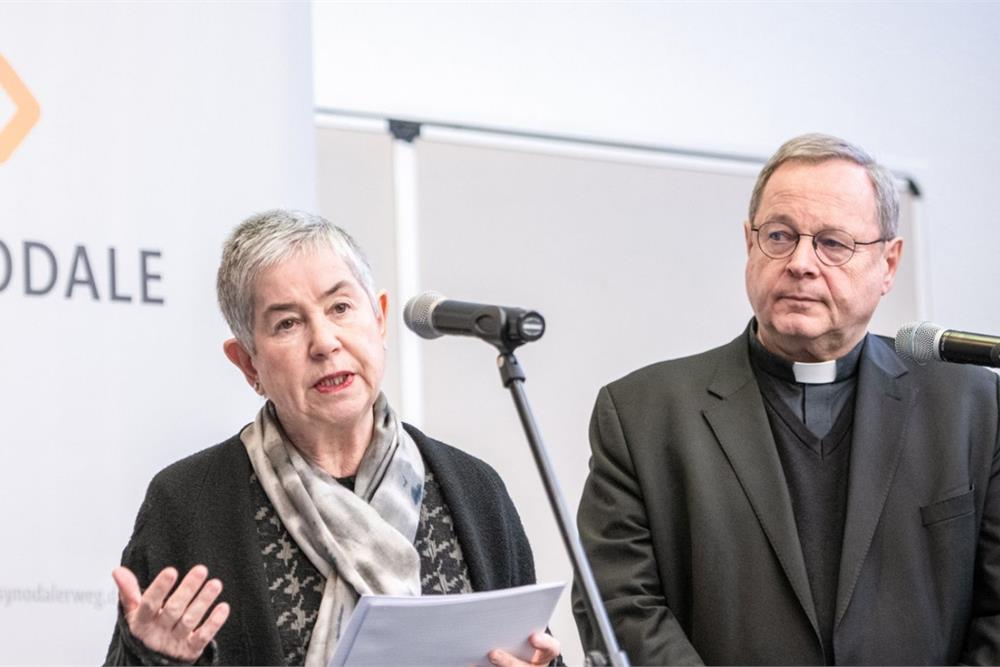The following is a summary of Pope Leo’s remarks to a group of French politicians provided by Silere non possum. My most humble brilliant remarks embedded in their text summary in (red). The full text translated into English, is well worth reading, which I post below the summary:
Vatican City – This morning, Pope Leo XIV received a delegation of French political figures from the Diocese of Créteil, led by Bishop Dominique Blanchet, in the Consistory Hall. The meeting took place in a cordial atmosphere: opening his remarks, Leo joked with his guests, saying in English: "I'm sure many of you speak English, no? I am going to attempt to speak French, counting on your benevolence!", then choosing to address them entirely in their own language.
Politics and Faith: "There Are Not Two Persons in One"
The Pope focused on a crucial theme: the relationship between faith and political responsibility. "Monsignor Blanchet asked me to give you some advice. In reality, I can only give you one, but it is crucial: unite yourselves ever more closely to Jesus, live by Him, and bear witness to Him. There is no public figure divided in two: on one side, the politician, on the other, the Christian. No. There exists the politician who, under the gaze of God and in conscience, lives out his commitments and responsibilities in a Christian manner. (This is what Vatican II asked of all lay Catholics, politicians and otherwise, to bring our Catholic Faith and Morals to the public square, politics, home, work, play!)
Leo XIV thus reiterated that Christianity cannot be relegated to the private or intimate sphere, but must permeate every dimension of life, including the public and legislative spheres.
Social Doctrine and the Courage to Bear Witness
The Pontiff then encouraged the French representatives not to fear applying and defending the Church's social doctrine with conviction, emphasizing its consistency with natural law, recognizable by all, even non-believers: "You are called to strengthen yourselves in faith, to deepen your knowledge of the Church's social doctrine, and to apply it in the exercise of your functions and in the drafting of laws. It is fully in harmony with human nature [...]. You must not be afraid to propose and defend it with conviction: it is a doctrine of salvation, oriented to the good of every person and the construction of peaceful, harmonious, prosperous, and reconciled societies." (This is key and Pope Leo knows it, that in the secular, political realm, we must rely upon Natural Law! It is great hearing a pope, once again, calling us to follow natural law as an antidote to so many of the societal problems today! Calling politicians to defend the doctrine of salvation!)
The Critique of Sterile Secularism
A particularly relevant passage of the speech concerned the French context. Leo XIV emphasized how, due to an often misunderstood secularism, it is not easy for a self-declared Christian politician to act and decide in accordance with his faith: "Your pilgrimage is not only a personal experience of enrichment, but it has great value and utility for the men and women you serve. And it is even more meritorious because, in France, it is not easy for a public representative—due to an often misunderstood secularism—to act and decide in accordance with his faith." (While this is certainly true of France since the French Revolution, it is also true of the USA and there are few Catholics in elected office in the USA who are doing what Pope Leo is asking! Just think of the most pernicious things that Biden, Pelosi and others have promoted and still claim to be good Catholics proudly receiving Holy Communion!)
Finally, the Pope clearly denounced the ideological pressures, party logic, and "cultural colonization" that make it increasingly difficult to live the Gospel in politics. "Courage is needed: the courage to say 'no, I can't,' when the truth is at stake," he warned. Absolutely! (Thank you Pope Leo and thank you for emphasizing Catholicism, as is your vocation, rather than a particular political party’s talking points, no matter how meritorious those talking points are. As a priest and bishop, you know your vocation and it isn’t political. That’s the vocation of the Catholic layman! Thanks for letting us know Christendom no longer exists and the clergy no longer run the world. The clergy’s role is to call the laity to sanctity and to live the Catholic Faith where they are planted!)
Here is the full text of the pope’s speech to French politicians but a google translate of the Italian text:
In the name of the Father, and of the Son, and of the Holy Spirit. Peace be with you!
I'm sure many of you speak English, right? I am going to attempt to speak French, counting on your benevolence!
I cordially greet His Excellency Archbishop Dominique Blanchet, and I welcome all of you, elected officials and civil leaders of the Diocese of Créteil, on your pilgrimage to Rome.
I am happy to welcome you on your journey of faith: return to your daily commitments strengthened by hope, more steadfast in working to build a more just, more humane, more fraternal world, which can only be a world more imbued with the Gospel. Faced with the various deviations experienced by our Western societies, we, as Christians, cannot do better than turn to Christ and ask for his help in carrying out our responsibilities.
For this reason, your journey, more than simply a matter of personal enrichment, is of great importance and of great benefit to the men and women you serve. This is all the more praiseworthy because, due to a sometimes misunderstood secularism, it is not easy for an elected official in France to act and decide consistently with his faith in the exercise of public responsibilities.
The salvation that Jesus achieved through his death and resurrection encompasses all dimensions of human life, such as culture, economics and work, family and marriage, respect for human dignity and life, health, and even communication, education, and politics. Christianity cannot be reduced to a simple private devotion, because it involves a way of living in society marked by the love of God and neighbor, who, in Christ, is no longer an enemy but a brother.
Your region, the place of your commitments, must address major social issues such as violence in some neighborhoods, insecurity, precariousness, drug networks, unemployment, the disappearance of conviviality… To address these issues, Christian leaders are strengthened by the virtue of charity that has indwelled them since their baptism. Charity is a gift from God, a “power capable of inspiring new ways to address the problems of today's world and profoundly renewing structures, social organizations, and legal systems from within. From this perspective, charity becomes social and political charity: social charity makes us love the common good and effectively seek the good of all people” (Compendium of the Social Doctrine of the Church, n. 207). This is why Christian leaders are better prepared to face the challenges of today's world, naturally to the extent that they live and bear witness to the faith at work within them, their personal relationship with Christ who enlightens them and gives them this strength. Jesus states it forcefully: “Because without me you can do nothing” (Jn 15:5); We should therefore not be surprised that the promotion of “values” — however evangelical they may be — but “emptied” of Christ who is their author, are incapable of changing the world.
So, Monsignor Blanchet asked me for some advice. The first—and only—advice I would give you is to unite yourselves ever more closely to Jesus, to live by him and bear witness to him. There is no separation in the personality of a public figure: there is not the politician on one side and the Christian on the other. But there is the politician who, under the gaze of God and his conscience, lives his commitments and responsibilities in a Christian manner!
You are therefore called to strengthen yourselves in faith, to deepen your knowledge of the doctrine—particularly the social doctrine—that Jesus taught the world, and to put it into practice in the exercise of your functions and in the drafting of laws. Its foundations are essentially in harmony with human nature, the natural law that everyone can recognize, even non-Christians, even non-believers. Therefore, there is no need to be afraid to propose and defend it with conviction: it is a doctrine of salvation that aims at the good of every human being, at the building of peaceful, harmonious, prosperous, and reconciled societies.
I am well aware that the openly Christian commitment of a public official is not easy, especially in certain Western societies where Christ and his Church are marginalized, often ignored, sometimes ridiculed. Nor am I unaware of the pressures, party directives, and "ideological colonizations"—to borrow a fitting expression from Pope Francis—to which politicians are subjected. They must have courage: the courage to say at times, "No, I can't!" when the truth is at stake. Here too, only union with Jesus—Jesus crucified!—will give you the courage to suffer in his name. He said this to his disciples: "In the world you will have tribulation, but take heart; I have overcome the world!" (Jn 16:33).
Dear friends, I thank you for your visit and assure you of my most sincere encouragement as you continue your work in the service of your fellow citizens. Maintain the hope of a better world; Remain certain that, united with Christ, your efforts will bear fruit and be rewarded. I entrust you and your country to the protection of Our Lady of the Assumption, and I cordially impart my Apostolic Blessing to you.



















